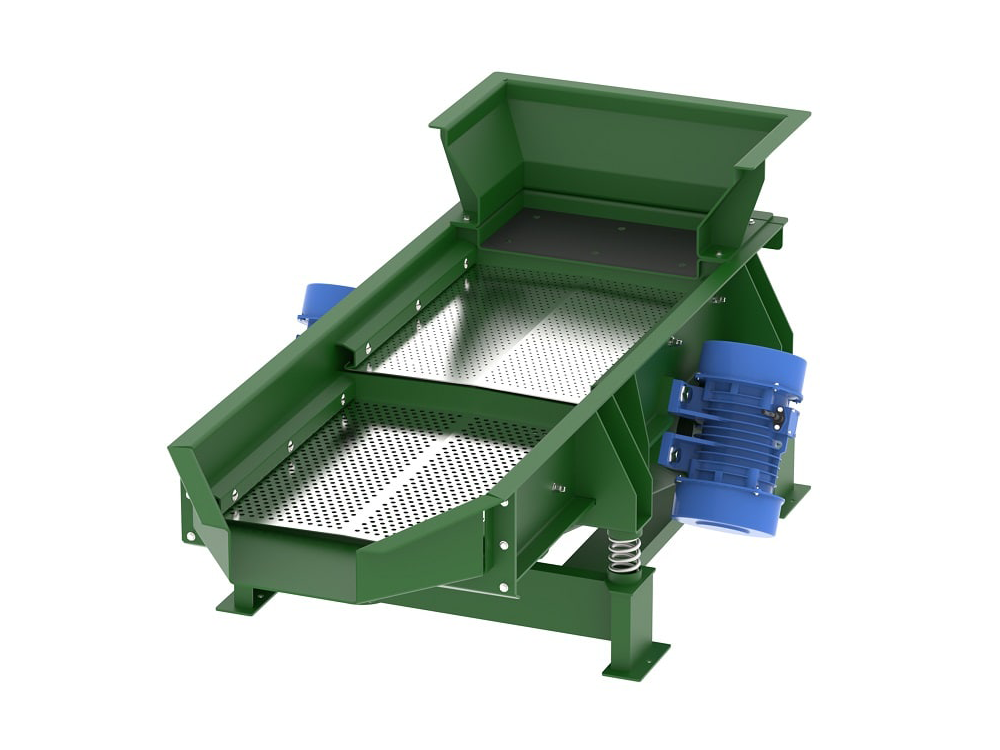Vibrating Feeder
Vibrating Feeder
A vibrating feeder is an industrial machine designed to transport materials in a controlled, consistent manner. It is widely used in mining, construction, manufacturing, and material processing industries for efficient material handling and automation.

Advantages of Vibrating Feeders
- Efficient Material Flow – Ensures a continuous and even supply of materials.
- Energy Efficient – Low power consumption compared to traditional conveyors.
- Low Maintenance – Simple design with minimal moving parts reduces wear and tear.
- Customizable Feed Rate – Adjustable vibration levels for different material needs.
- Prevents Material Blockage – Vibrations help avoid clogging and sticking.
- Handles Various Materials – Works with fine powders, granules, and bulk solids.
Applications of Vibrating Feeders
- Mining & Quarrying – Feeds raw materials like ores and rocks to crushers and screens.
- Construction Industry – Transfers sand, gravel, and cement in batching plants.
- Manufacturing & Processing – Used in food pharmaceuticals, and chemical industries for material handling
- Recycling Plants – Efficiently removes and separates waste materials.
Metalworking – Supplies metals and alloys to production lines.
Working Principle of a Vibrating Feeder
A vibrating feeder operates by using vibratory motion to move materials along a feeding tray. The movement is typically generated through electromagnetic or mechanical vibration mechanisms. Here’s how it works:
Mechanical Vibrating Feeder (Driven by Motors or Springs)
- Uses an unbalanced motor or twin motors to generate linear vibrations.
- The motor drives the feeder tray to oscillate at a fixed frequency, moving the material forward in small jumps.
- This type is suitable for heavy-duty applications, such as bulk material handling in mining and construction.
Electromagnetic Vibrating Feeder (Driven by Electromagnets)
- Works using an electromagnetic coil that creates rapid vibrations.
- When an AC power supply energizes the electromagnet, it generates vibrations in the feeder tray.
- The material moves in a controlled and precise manner, making it ideal for handling fine powders and small particles.
Gravity-Assisted Motion
- The vibrations cause the material to move forward while gravity guides the material down the tray.
- Adjustable vibration intensity allows control over the feed rate and material flow.
Get your product
Come & contact us today!
